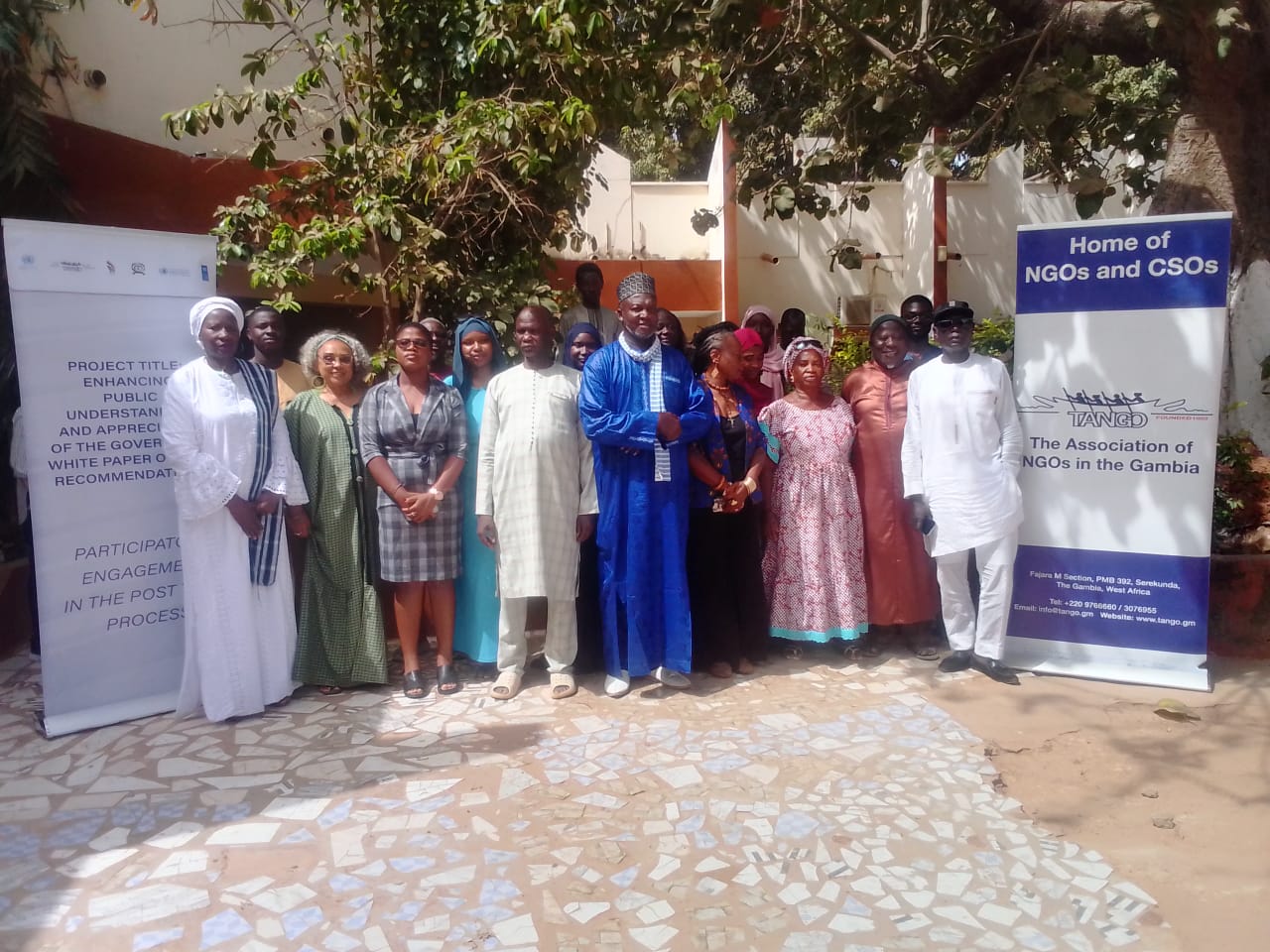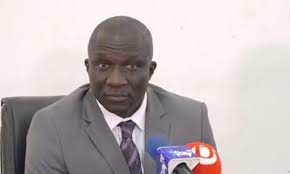By: Binta Jaiteh
The chairperson of TANGO Yadicone Njie Eribo Friday argued that transitional justice should not be viewed as a donor dependent project but rather should be seen as sovereign obligation. This, she says, is rooted in Gambians’ collective moral and constitutional duty to right the wrongs of the past. Mrs. Eribo was speaking at TANGO’s headquarters in Bakau during an engagement with the Gambia Bar Association and the Post TRRC Unit.
The engagement marked an important opportunity for cross-sector dialogue and collaboration bringing together legal experts, civil society leaders, and transitional justice practitioners to deliberate on an issue of pressing national concern, the changing international aid landscape and implication for the effective and credible implementation of the TRRC’s recommendations on justice and accountability.
According to her, the establishment and work of the Truth, Reconciliation and Reparations Commission (TRRC) represented a courageous national reckoning with the recent past.
“The commission laid bare the horrors of state-sponsored violations and systemic impunity that marked decades of authoritarian rule,” she said. “Its findings not only documented gross human rights abuses but also identified those allegedly responsible, recommending a roadmap for justice, reparations, and institutional reforms,” she added.
For survivors and victims’ families, Mrs Eribo continues, the TRRC offers hope and a long-overdue acknowledgment of their suffering.
According to her, now it marks the beginning of a new chapter, one grounded in the rule of law, democratic values and a culture of accountability.
“Yet we find ourselves at a crossroads. The environment in which transitional justice must now be implemented is evolving. Globally, we are witnessing shifts in donor interests, a reconfiguration of development priorities, and increased competition for finite international resources,” she reiterated.
“This has tangible implications for The Gambia’s ability to pursue the legal, institutional, and reparative measures necessary for justice and national healing,” Mrs Eribo added.
Another speaker at the gathering was the Executive Director of TANGO, Ndey Sireng Bakurin who said that it represented a pivotal moment in Gambia’s democratic journey.
“The work of the TRRC provided our nation with a historic opportunity to confront its painful past and to build a future grounded in accountability and the rule of law,” she noted.
She emphasized that international aid landscape was evolving and global priorities were shifting, while development assistance was becoming more conditional and competitive, and the space for funding transitional justice was narrowing.





